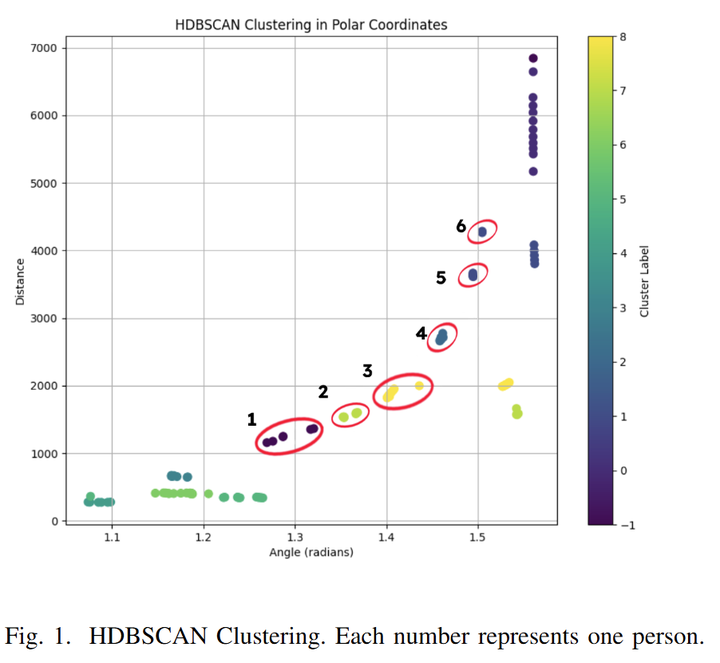
Abstract
Long queues in retail and public environments can frustrate customers and negatively impact user experiences. Traditional camera-based monitoring systems are effective in analyzing queues, however, the potential for identification raises privacy concerns. Other queue-counting methods (such as WiFi or RFID) depend on user-carried devices or tags. In contrast, LiDAR sensors strictly measure distances and angles, which drastically reduces privacy risks and does not require users to carry specialized hardware. We present LOADS, an end-to-end, single-sensor, LiDAR-based IoT solution for queue-occupancy and wait-time estimation. LOADS incorporates Hierarchical Density-Based Spatial Clustering of Applications with Noise (HDBSCAN) to provide a robust method of accurately separating people from noise in real time. We employ a SARIMAX model to predict future queue lengths from historical data stored in a time-series database. A web interface shows real-time and historical queue information, enabling users to make informed decisions. We demonstrate the feasibility of LOADS in practical retail and conference scenarios, highlighting its privacy-preserving nature, accurate crowd estimation, and simple deployment.